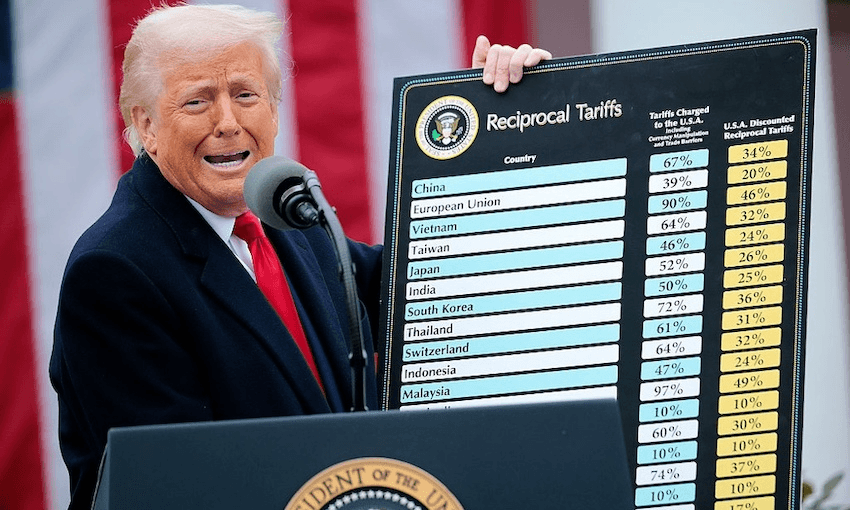The prime minister says his approach to foreign affairs doesn’t differ that much from how he tackles issues back home – and that means “bread and butter”.
Chris Hipkins jets off to Brussels later today to sign a free trade deal with the European Union. From there, he’ll head to Stockholm and to a Nato summit in Lithuania.
In an address at parliament today, Hipkins said he deals with the international sphere by getting back to the basics and “dealing with bread and butter issues”.
“In foreign policy terms it means making sure that we have greater economic resilience across our trade markets in a time of global uncertainty,” Hipkins said.
“The longer I’ve been in the role the more I’ve seen first-hand the enormous benefits of our independent foreign policy, our role as an honest broker, and the importance of our close relationships in enhancing our prosperity and security.”
New Zealand, he said, would not remain “neutral” despite holding an independent view on policy. “As a country, we may be small, but we are not bystanders. We chart our own course, with decisions that are in our national interest.”
This included recent reports of a “robust” conversation between the foreign minister Nanaia Mahuta and her counterpart in China. “You might have noticed we didn’t deny that,” Hipkins said. “Our approach has always been that we are consistent in asserting our interests, we are predictable as we advance our values and we are respectful as we engage in our relationship with China.
“A strong, mature and complex relationship means we will have those tough conversations, just as I also raised areas of disagreement with the Chinese leadership when I was in Beijing.”
He added: “But I think it’s better to be talking than not. Dialogue delivers greater security.”
During his speech, Hipkins canvassed his foreign policy agenda – including recent trips to Australia, Papua New Guinea and China. He said trade remained at the forefront of that agenda. “Expanding trade opportunities for New Zealand exporters is central to the Government’s economic recovery plan,” said Hipkins.
Under the headling of “enhancing defence and security capabilities”, Hipkins added that New Zealand cannot be “passive” and we need to continue our investment in these area. The government will be releasing an interrelated set of strategic policy documents and assessments, he said, spanning across New Zealand’s national security, defence, and foreign policy. It will include a new National Security Strategy. “Taken together, these represent an important step in how we will protect our national security and advance our national interests in a more contested and difficult world,” said Hipkins.




















Discussion about this post